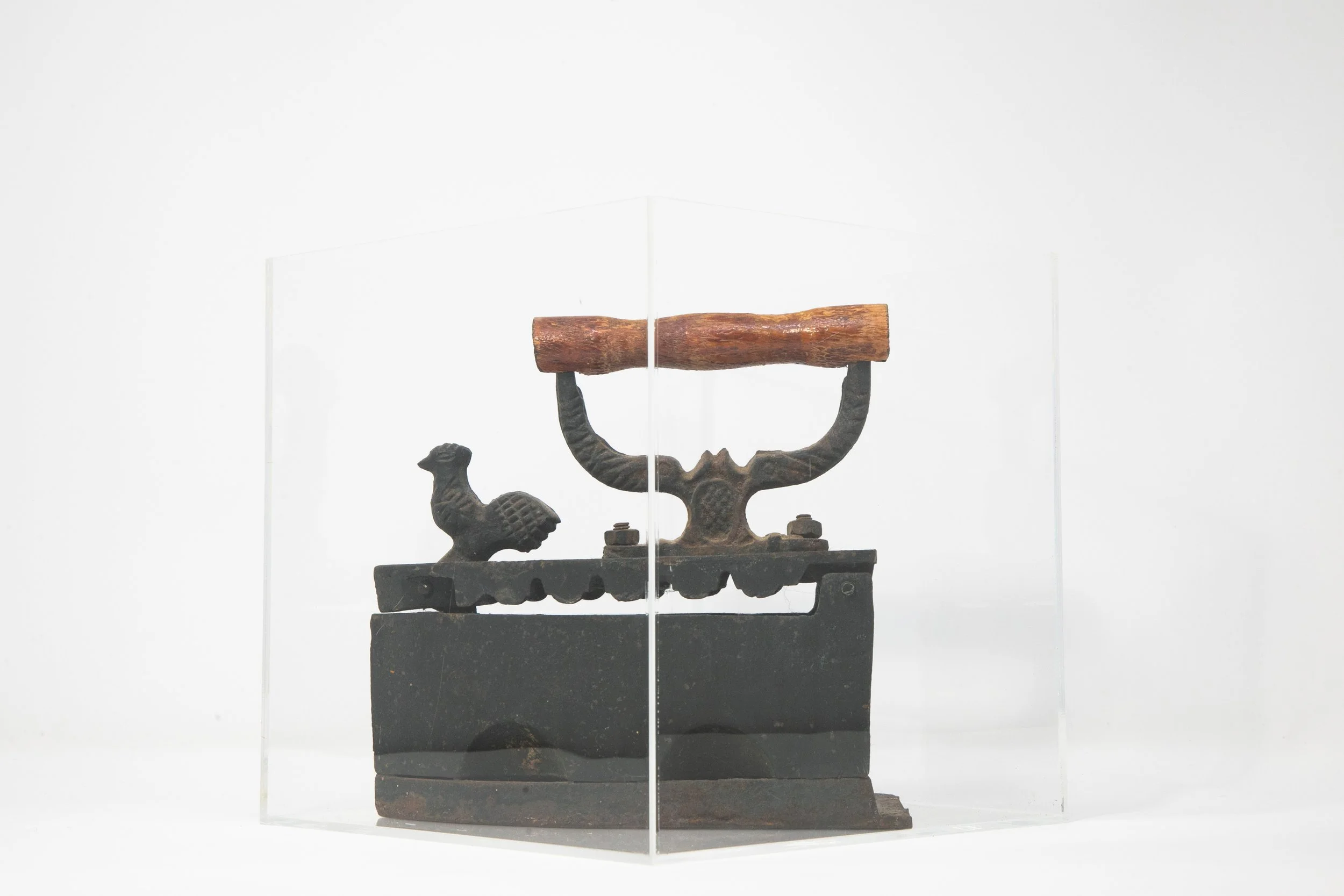
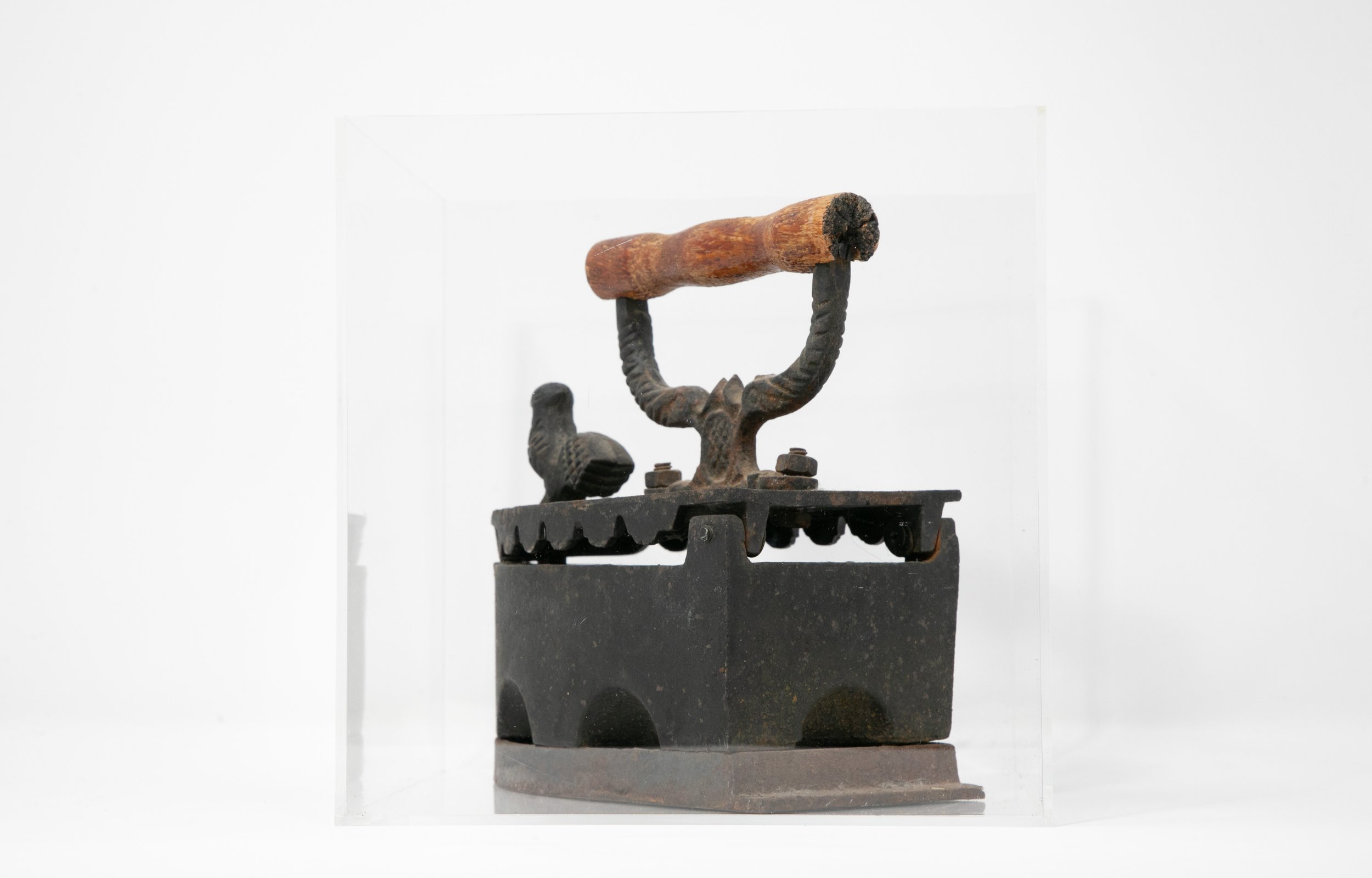
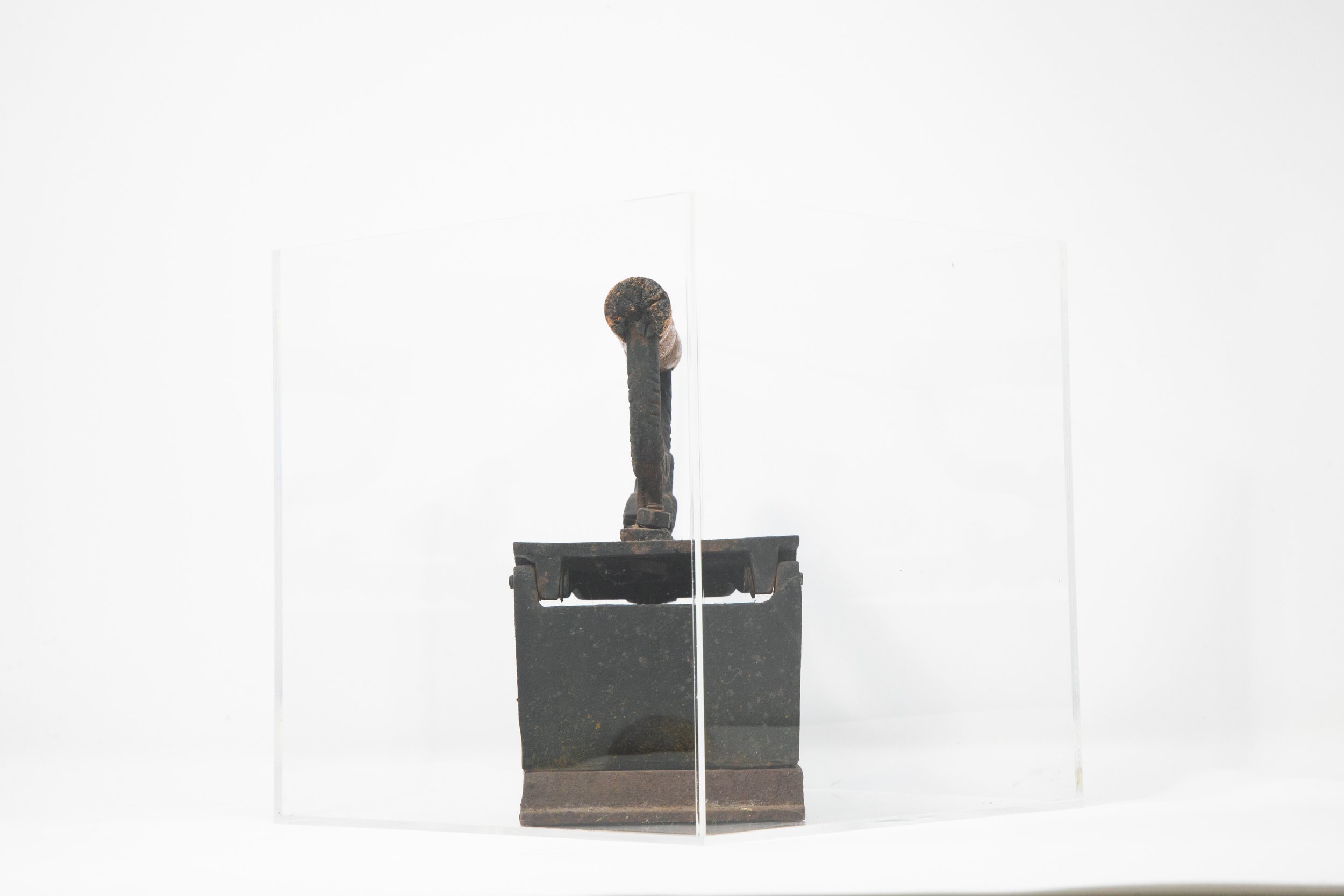
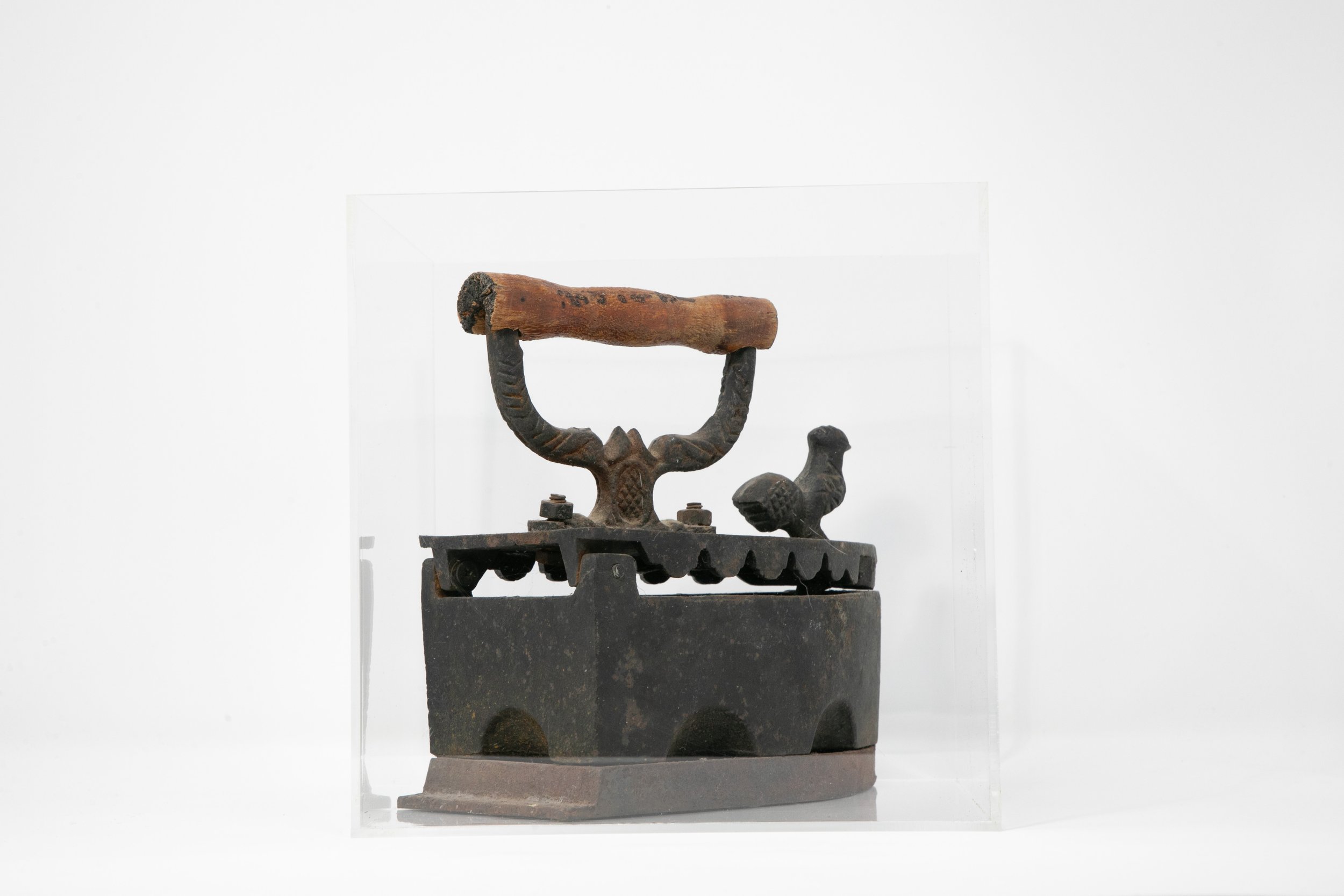
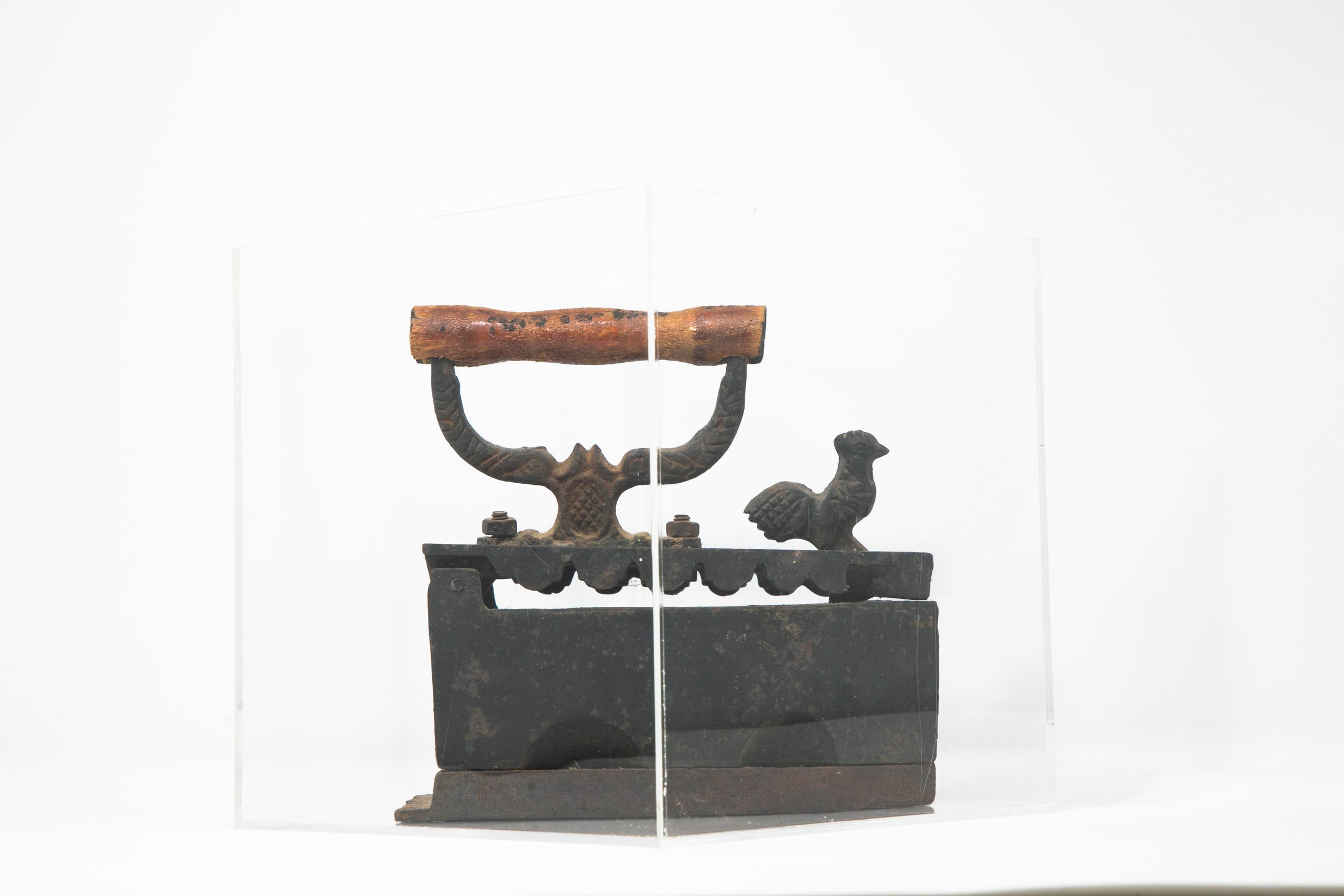
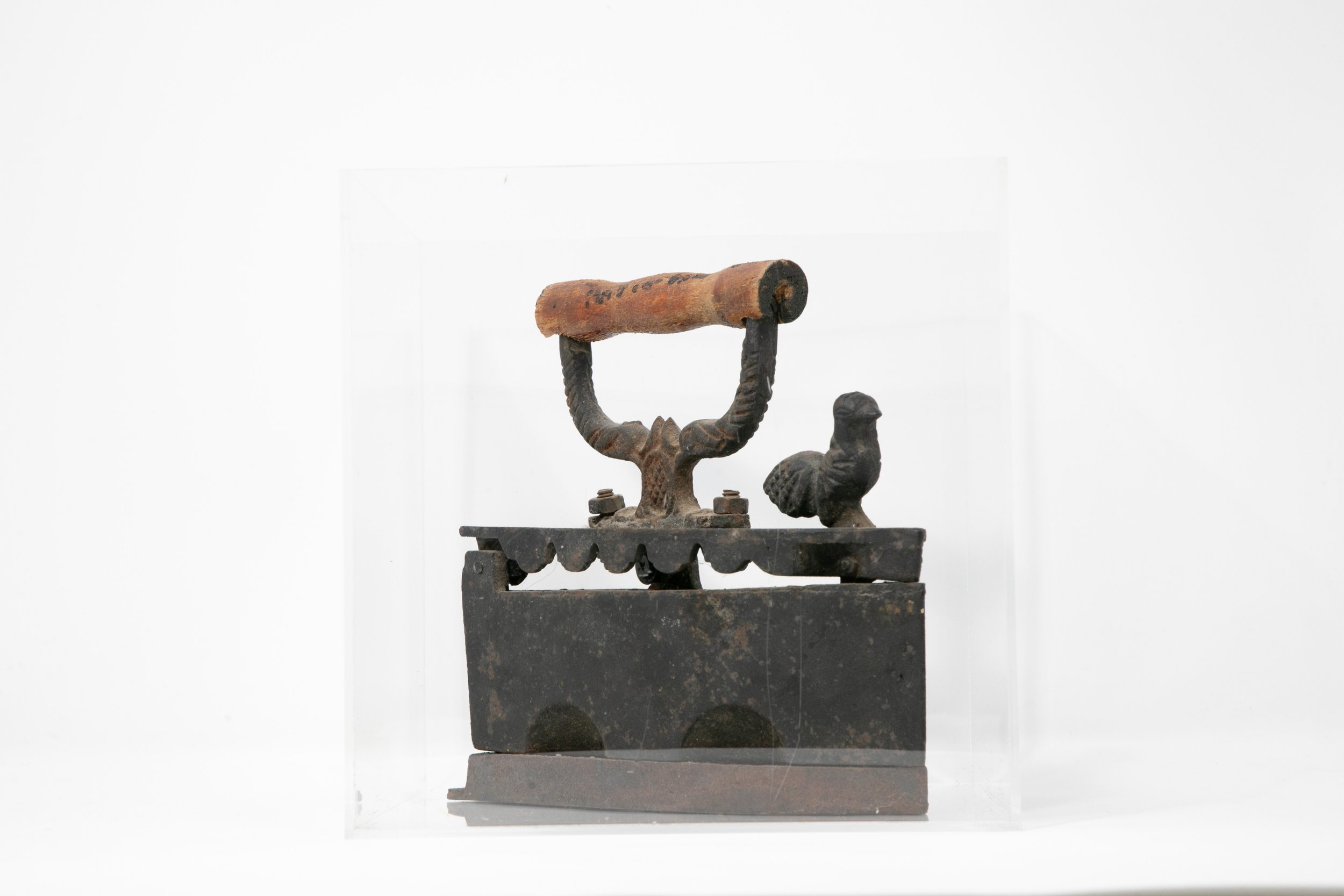
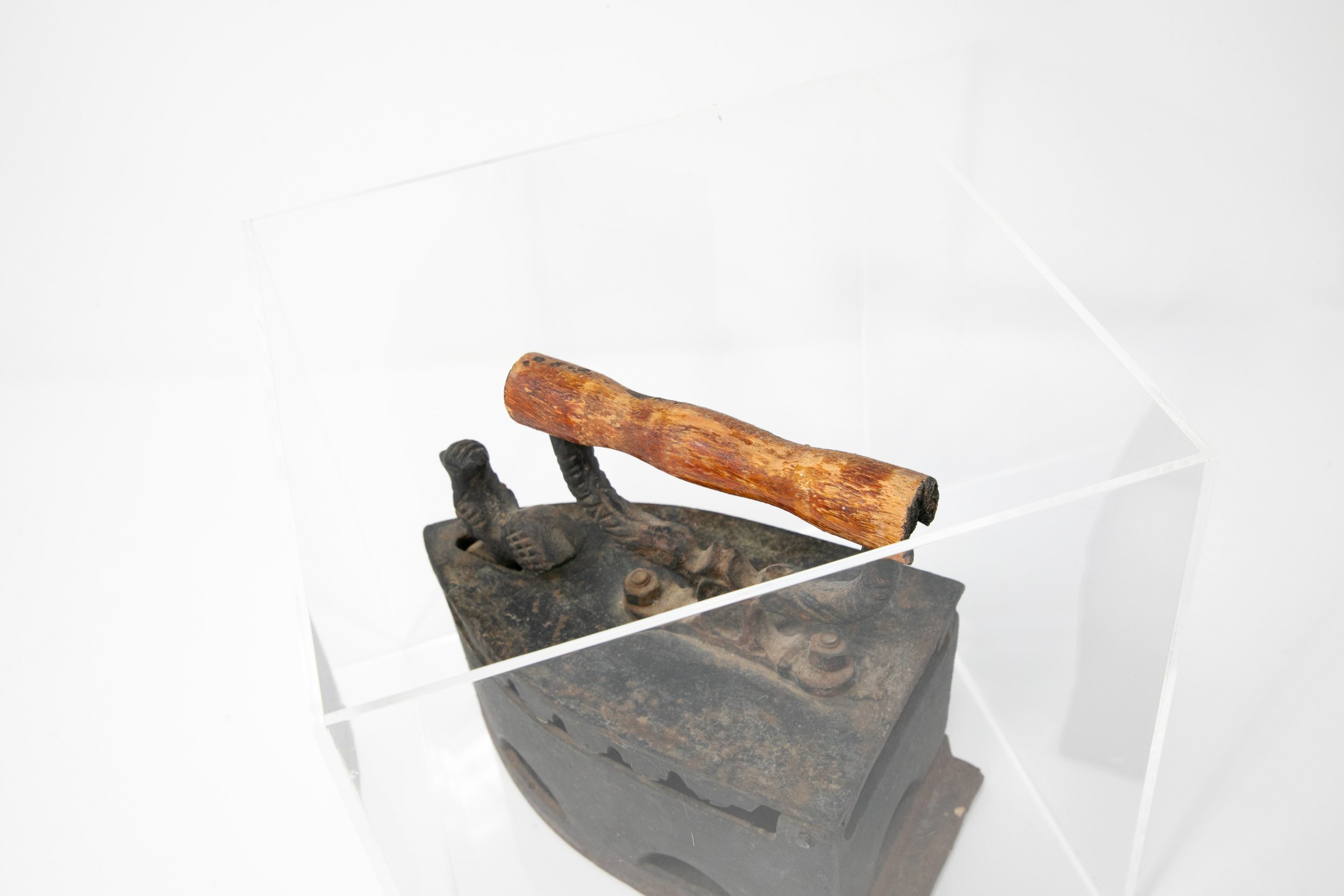
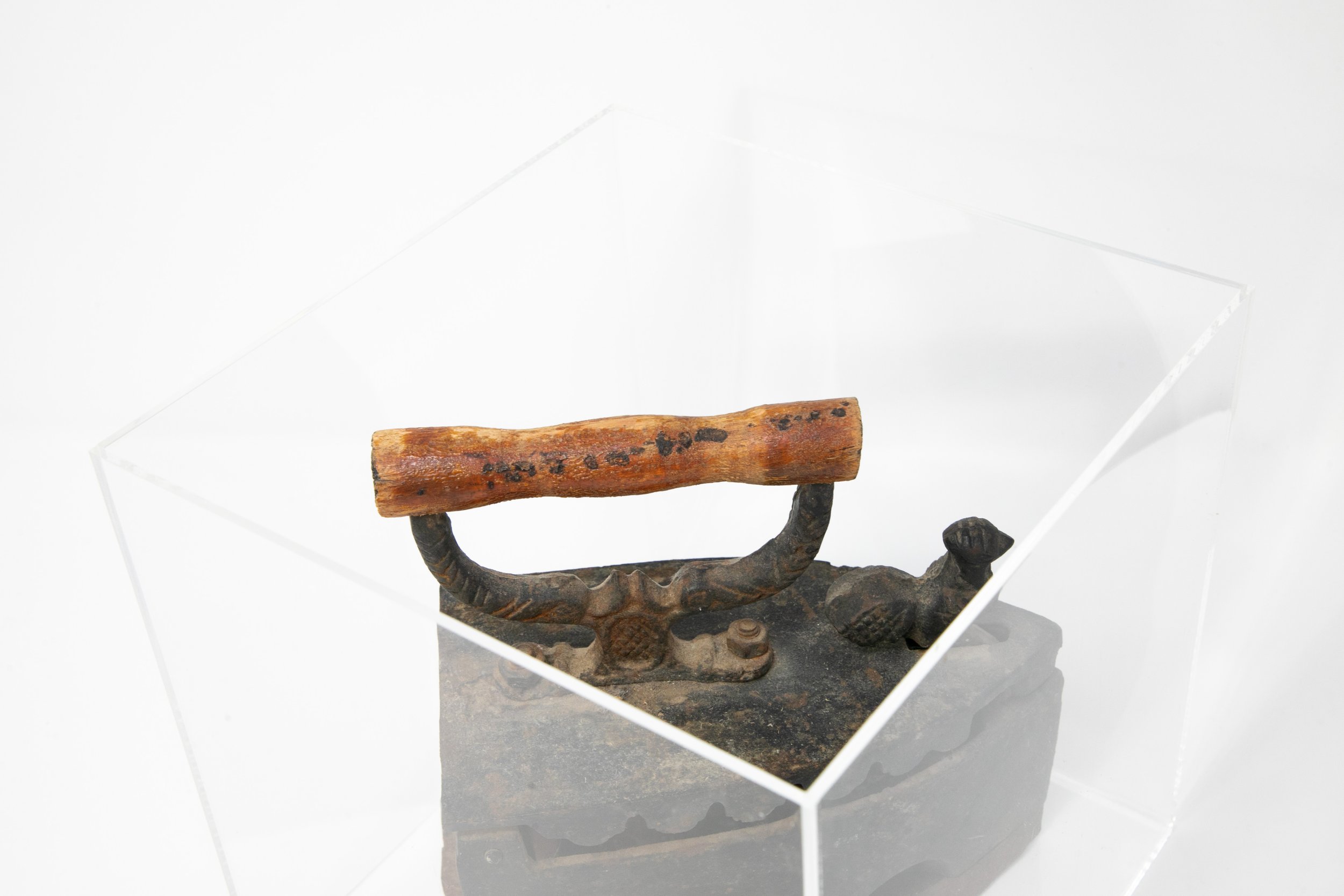
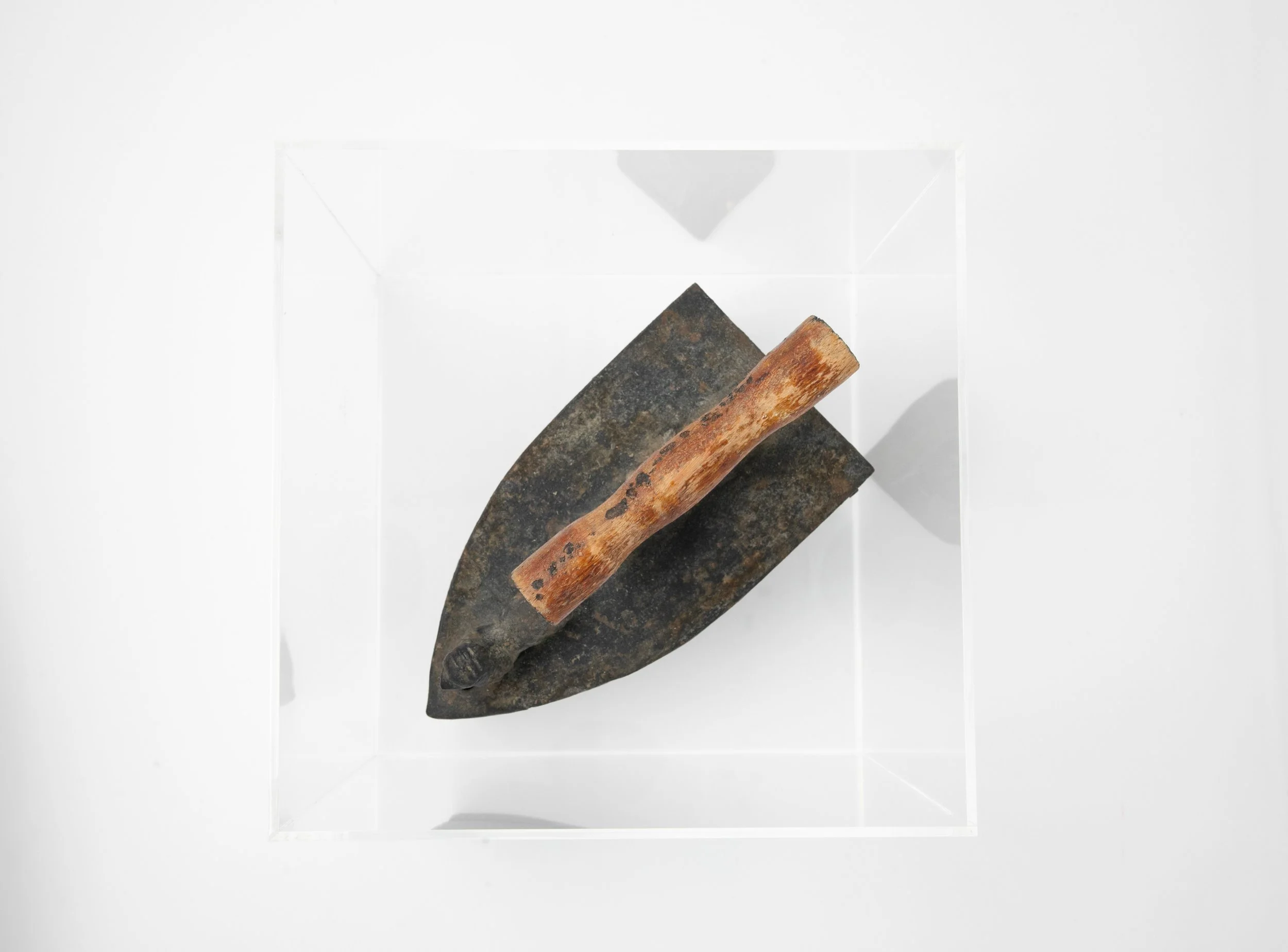
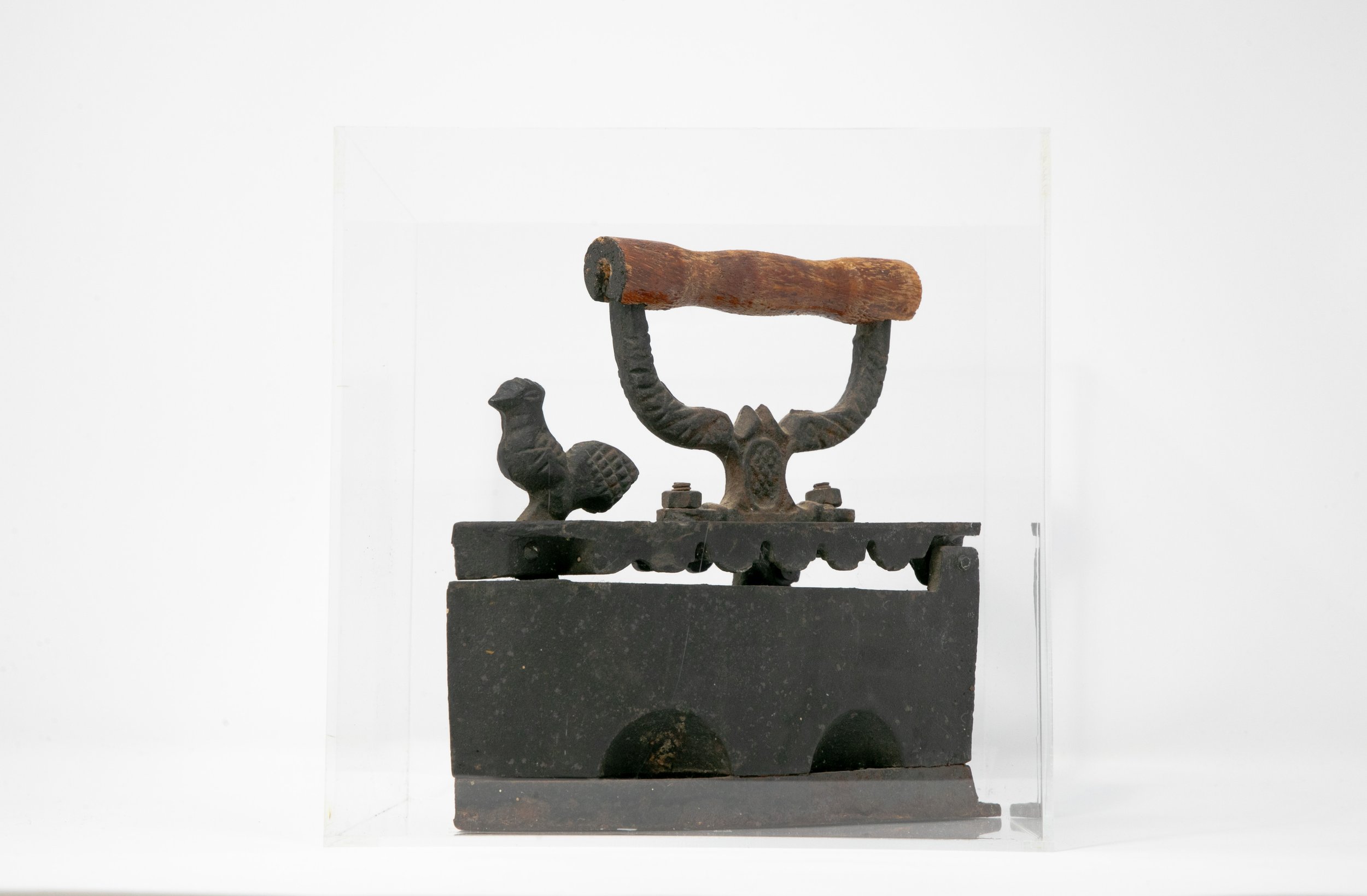
Suzanne DeCuir
Lacrimae Rerum, 2024
Age: 67
Transcript
Antique Sad Iron
Until a few years ago I thought I was descended from Irish and European ancestors. A 23andMe test pointed in another direction: I was descended from a Frenchman who came to Louisiana in 1720 as an indentured miner.
He was not a miner for long.
Within a few generations he and his descendants had established sugar plantations manned by slaves.
Although taken aback by this, I was even more surprised to learn that I was connected to the oppressed as well as the oppressors: my 3rd great grandmother was a slave until she was 32. Two of her children were freed along with her; she was later offered the chance to buy two other children, which she did.
There is scarcely a trace left of these people, but old records written in French, and the estates and slave cottages they lived in.
The will of one of my ancestors itemizes her possessions: a sewing machine, a few sheep, a clothes iron.
Where are her things now?
The words Lacrimae Rerum appear early in Virgil’s work when Aeneas looks upon a frieze that tells the story of the Trojan wars during which many of his friends died.
Aenaes is moved and talks about lacrimae rerum: “the tears of things” and how “mortal things touch the mind.”
For me, the lack of provenance for this iron is precisely what gives it power as a mysterious touchstone and reminder of individuals who lived and died in another time.
